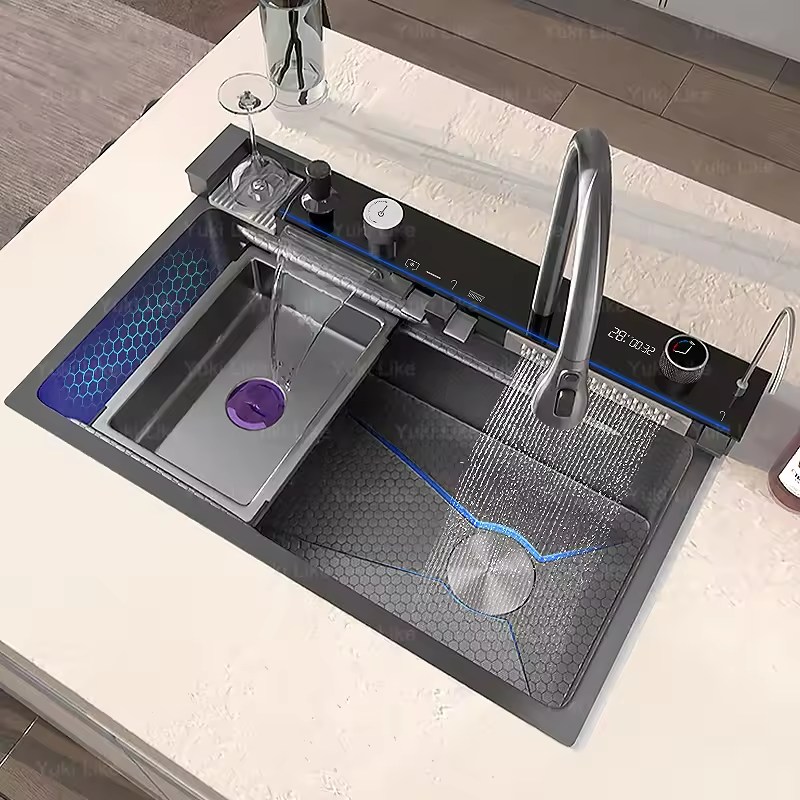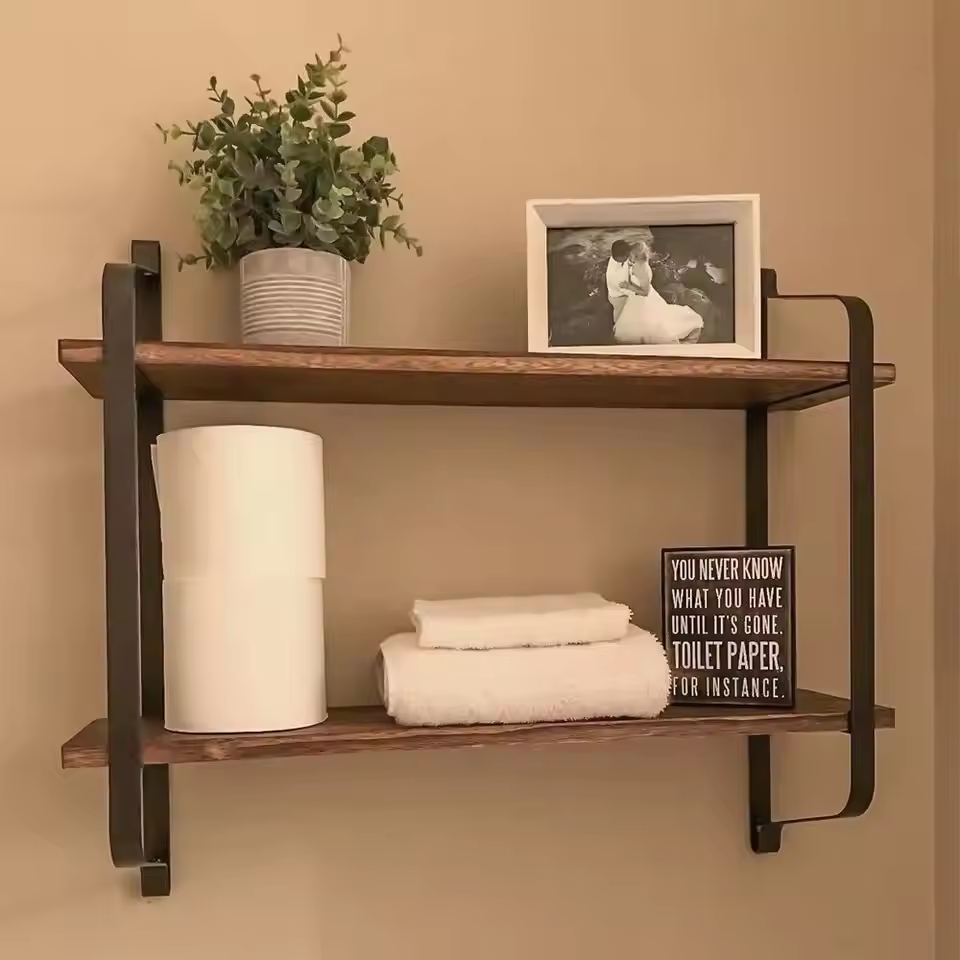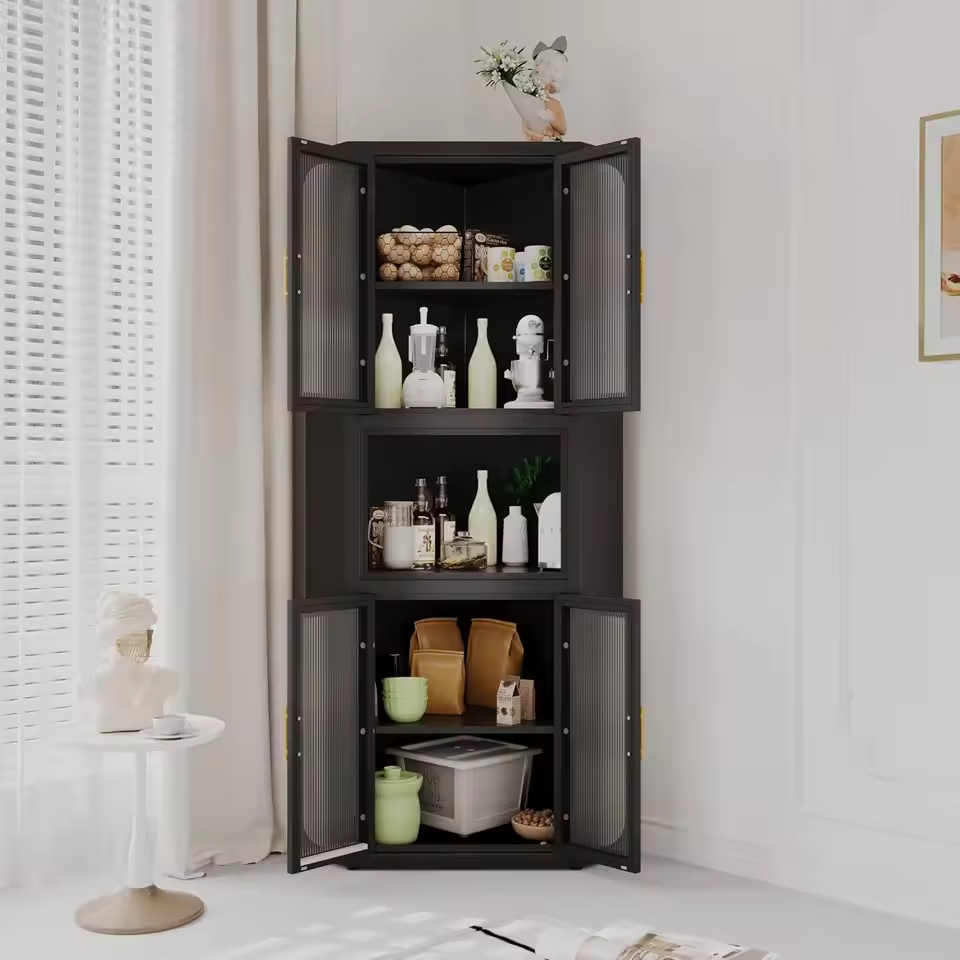Factors to Consider When Selecting a Kitchen Sink Material
Choosing the best material for kitchen sink depends on various factors. These factors affect functionality, aesthetics, and long-term satisfaction. By analyzing these aspects, you can make an informed choice.
Durability and Longevity
Durability is essential when picking a kitchen sink material. Some materials, like stainless steel and granite composite, can withstand heavy use for years. Ensure the material resists scratches, dents, and stains. Long-lasting materials reduce the hassle of frequent replacement.
Maintenance and Cleaning Requirements
Different materials require varying levels of maintenance. For example, stainless steel is easy to clean but prone to water spots. Fireclay offers minimal upkeep but demands gentle care to avoid cracks. Select a material that suits your cleaning habits to save time and effort.
Aesthetic Appeal and Style
Your sink material impacts how your kitchen looks overall. Stainless steel offers a sleek, modern vibe, while copper adds warmth and charm. Granite composite provides a natural stone appearance, ideal for elegant settings. Match the material to your kitchen’s design theme.
Budget and Cost-effectiveness
Kitchen sinks come in a range of prices. Stainless steel is often affordable, while quartz composite and copper can be pricier. Consider long-term value alongside upfront cost. A more expensive yet durable sink may save money over time through fewer repairs or replacements.
Popular Materials for Kitchen Sinks
When selecting the best material your kitchen sink, it’s essential to understand the options available. Each material has unique features, benefits, and drawbacks. Here are some popular choices:
Stainless Steel
Stainless steel is a classic choice for kitchen sinks. It is durable and affordable. This material resists stains, rust, and heat, making it practical for everyday use. It works well in modern and industrial-style kitchens. However, it can show water spots and scratches over time.
Granite Composite
Granite composite sinks are made by blending granite stone and resin. They provide a natural stone look and are resistant to chips and scratches. These sinks are sturdy, heat-resistant, and offer a luxurious appearance. However, they are heavier than other materials and may require reinforced countertops.
Fireclay
Fireclay sinks are crafted from clay fired at high temperatures. They feature a smooth, glossy finish and minimal designs. These sinks are resistant to chips, stains, and discoloration, ensuring long-term beauty. Handle them with care, as heavy impacts may cause cracks. Fireclay works well in traditional-style kitchens.
Cast Iron
Cast iron sinks are coated with enamel, offering a strong and elegant appearance. They are resilient against stains and scratches and add a timeless charm to your kitchen. Despite their durability, enamel can chip with heavy use. These sinks can also be quite heavy, demanding sturdy cabinetry.
Quartz Composite
Quartz composite sinks combine quartz stone and resin for a durable and trendy design. They are resistant to heat, scratches, and fading, making them ideal for busy kitchens. Their non-porous surface prevents stains from absorbing. Quartz composite sinks often match contemporary and transitional styles.
Copper
Copper sinks are unique and add a warm, antique touch to your kitchen. They naturally resist bacteria and develop a patina over time, enhancing their charm. These sinks require regular maintenance to keep their appearance. Copper can be more expensive and may dent more easily than other materials.
Pros and Cons of Each Kitchen Sink Material
Choosing the best material for kitchen sink requires considering its advantages and drawbacks. Each material caters to specific needs and preferences. Examining their pros and cons helps you make an informed decision.
Stainless Steel
Pros:
- Durable and lightweight, suitable for heavy use.
- Resistant to rust, stains, and heat.
- Affordable and works with various kitchen designs.
Cons:
- Easily shows scratches and water spots.
- Can be noisy unless insulated.
Granite Composite
Pros:
- Offers a luxurious natural stone appearance.
- Highly resistant to heat, scratches, and chips.
- Non-porous surface prevents stains and bacterial growth.
Cons:
- Heavier than other options; may need countertop reinforcement.
- Can be more expensive compared to other materials.
Fireclay
Pros:
- Smooth and glossy finish with timeless appeal.
- Resists stains, chips, and discoloration.
- Ideal for traditional-style kitchens.
Cons:
- Vulnerable to cracks after heavy impacts.
- Requires careful handling during use.
Cast Iron
Pros:
- Extremely durable with a strong enamel coating.
- Resists stains and adds classic charm.
- Long-lasting with proper care.
Cons:
- Enamel may chip over time.
- Heavy material may need reinforced cabinetry.
Quartz Composite
Pros:
- Modern design with excellent durability.
- Resistant to heat, scratches, and fading.
- Non-porous surface prevents stain absorption.
Cons:
- Costs more than stainless steel sinks.
- Limited options for traditional kitchen designs.
Copper
Pros:
- Adds unique warmth and antique appeal.
- Naturally resists bacteria.
- Develops a patina that enhances charm over time.
Cons:
- Requires regular maintenance to maintain beauty.
- Dents easily and can be pricey.
- Not suitable for high-traffic kitchens.
Choosing the best material for kitchen sink involves analyzing these factors carefully. Select a sink that fits your lifestyle, budget, and design preferences.
Matching Sink Material to Your Kitchen Design
Finding the right sink material depends on your kitchen’s design and style. Some materials work better with specific layouts, creating a seamless and cohesive look.
Modern Kitchens
Modern kitchens emphasize sleek lines, minimal designs, and contemporary features. Stainless steel sinks are a popular choice due to their streamlined appearance, durability, and affordability. Quartz composite sinks also suit modern kitchens with their trendy, non-porous surfaces and heat resistance. Opt for simple shapes and neutral colors to complement the modern aesthetic.
Traditional Kitchens
Traditional kitchens often feature classic and elegant designs. Fireclay sinks fit perfectly with their smooth and glossy finishes, enhancing timeless charm. Cast iron sinks, coated with enamel, align beautifully with traditional settings, offering durability and a luxurious feel. Copper sinks also add warmth and antique appeal, tying in with traditional elements.
Transitional Kitchens
Transitional kitchens blend modern and traditional styles. Quartz composite sinks work well in these kitchens due to their versatile design. Granite composite sinks, with their natural stone appearance, also complement transitional themes. Choose materials that provide balance in both style and functionality for the best fit.
Maintenance Tips for Different Sink Materials
Proper maintenance ensures the longevity and beauty of your kitchen sink. Each material has unique care requirements. Follow these tips to maintain your sink based on its material:
Stainless Steel
- Wipe down the sink regularly to prevent water spots and streaks.
- Use a soft cloth and non-abrasive cleaner for cleaning.
- Avoid harsh scrubbing pads that can leave scratches.
- Consider using a sink grid to protect the surface from dents.
Granite Composite
- Clean with mild soap and water to avoid damaging the finish.
- Avoid using abrasive or acidic cleaners that can dull the surface.
- Use a soft sponge or cloth for daily cleaning.
- Apply mineral oil periodically to maintain its sheen.
Fireclay
- Clean immediately after spills to avoid discoloration.
- Use non-abrasive cleaners to protect the glazed surface.
- Handle heavy cookware carefully to prevent cracks or chips.
- Avoid exposing the sink to sudden temperature changes.
Cast Iron
- Use a soft sponge to clean the enamel coating gently.
- Avoid dropping heavy items to prevent chipping.
- Never use abrasive cleaners that could scratch the surface.
- Keep the sink dry to protect the exposed cast iron areas.
Quartz Composite
- Clean with mild soap and warm water for everyday maintenance.
- Avoid exposing the sink to heavy, sharp objects to prevent scratches.
- Use non-abrasive cleaning materials to keep its smooth finish.
- Remove stains promptly using baking soda and water paste.
Copper
- Clean the sink with mild soap and water—dry with a soft cloth.
- Avoid acidic substances that can alter the patina.
- Regularly apply wax to maintain its finish and shine.
- Be cautious with abrasive materials that could cause dents or scratches.
By properly maintaining your sink, you ensure it remains functional and visually appealing for years.
FAQs About Kitchen Sink Materials
1. What is the most durable material for kitchen sinks?
Stainless steel, granite composite, and quartz composite are highly durable and resist wear over time.
2. Which sink material is easiest to maintain?
Stainless steel is simplest to clean. Fireclay also requires minimal upkeep but needs gentle handling.
3. Are granite composite sinks worth the cost?
Yes, granite composite sinks are durable, resistant to stains, and add a luxurious look.
4. Do copper sinks require special care?
Copper sinks need regular cleaning and waxing to prevent tarnishing and maintain their finish.
5. Can cast iron sinks chip easily?
Enamel-coated cast iron sinks can chip if exposed to heavy impacts or dropped items.
6. Are quartz composite sinks heat-resistant?
Yes, quartz composite sinks resist heat effectively and are ideal for busy kitchens.
7. How do I prevent water spots on stainless steel sinks?
Dry the sink after use and clean with a soft cloth to avoid water spots.
8. What sink materials suit modern kitchen designs?
Stainless steel and quartz composite are perfect for sleek and modern kitchens.
9. Can fireclay sinks handle heavy pots and pans?
Fireclay sinks can handle moderate use, but avoid dropping heavy items to prevent cracking.
10. Which material is best for a budget-friendly sink?
Stainless steel is affordable, durable, and fits most budgets, offering excellent value.

